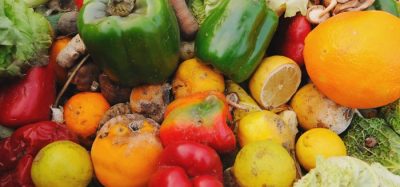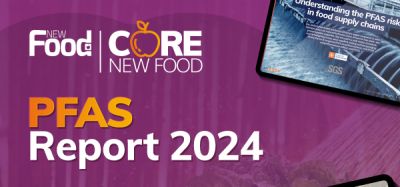New UD Study Reveals Water Management’s Impact on Toxic Metals in Baby Food Staples
- Like
- Digg
- Del
- Tumblr
- VKontakte
- Buffer
- Love This
- Odnoklassniki
- Meneame
- Blogger
- Amazon
- Yahoo Mail
- Gmail
- AOL
- Newsvine
- HackerNews
- Evernote
- MySpace
- Mail.ru
- Viadeo
- Line
- Comments
- Yummly
- SMS
- Viber
- Telegram
- Subscribe
- Skype
- Facebook Messenger
- Kakao
- LiveJournal
- Yammer
- Edgar
- Fintel
- Mix
- Instapaper
- Copy Link
Posted: 9 September 2024 | Ian Westcott | No comments yet
University of Delaware researchers uncover how water management affects toxic metal levels in rice and spinach, staples often found in baby food, potentially influencing future food safety policies.


A new study published in Environmental Geochemistry and Health by the University of Delaware (UD) highlights how managing water in rice fields affects arsenic and cadmium levels in rice—key components in many baby foods. Researchers found that water levels significantly influence the concentration of these toxic metals, which is crucial for ensuring food safety for infants and young children.
The study, led by UD soil biogeochemist Angelia Seyfferth and research associate Matt Limmer, investigated rice fields under various moisture conditions at the UD Newark Farm. Their findings reveal that flooded fields accumulate higher levels of arsenic and lower levels of cadmium in rice, while drier conditions lead to increased cadmium and reduced arsenic. Despite these variations, cadmium levels under drier conditions remained within established safety thresholds.
“This research is essential for understanding how water management practices impact metal contamination in rice, which is commonly used in baby food,” Seyfferth said. “However, finding a universal solution for irrigation remains complex.”
These insights come as the U.S. Food and Drug Administration (FDA) prepares to update regulations for arsenic, cadmium, lead, and mercury in baby foods under its Closer to Zero Action Plan. The UD study could influence these forthcoming standards, aimed at protecting infants from developmental risks associated with toxic metals.
In addition to rice, the study highlights concerns in the spinach industry. A review in GeoHealth reveals that spinach, another common baby food ingredient, can absorb cadmium and lead from soil, with chlorinated irrigation water exacerbating the problem. Researchers suggest exploring alternative disinfection methods and improved soil management practices to reduce these contaminants.
“Farmers need practical solutions and incentives to manage metal levels effectively,” Seyfferth noted. “Our findings indicate that targeted strategies and better water management could significantly lower toxic metal levels in both rice and spinach.”
As the FDA moves towards revising food safety regulations, Seyfferth advocates for a comprehensive national survey to better understand metal contamination in agricultural soils and crops. The ongoing research aims to refine agricultural practices and shape policy, ultimately enhancing food safety for babies and young children.









